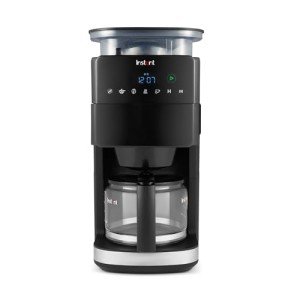A Comprehensive Guide to Espresso Machines: Types, Features, and FAQs
Espresso machines have actually ended up being a staple in coffee culture, captivating both lovers and casual drinkers alike. As the need for high-quality coffee boosts, comprehending the range of espresso machines offered and their functions becomes important. This post intends to supply an in-depth exploration of espresso machines, covering their types, performances, and what to consider when buying one.
Types of Espresso Machines
Espresso machines been available in numerous styles, each with distinct features, benefits, and compatibility with different developing techniques. Below, we talk about the main kinds of espresso machines available on the market:
| Type | Description | Target User |
|---|---|---|
| Manual Espresso Machines | These need the user to physically run the machine, providing total control over the brewing procedure. | Coffee perfectionists and enthusiasts |
| Semi-Automatic Machines | These machines automate the water pressure however need manual input for brewing time. | Intermediate users |
| Totally Automatic Machines | These machines do everything immediately, from grinding the beans to brewing the coffee. | Busy experts |
| Super-Automatic Machines | These machines are totally automated and can produce different coffee drinks with very little user intervention. | Users seeking benefit |
| Capsule Espresso Machines | These utilize pre-packaged coffee capsules to streamline the brewing process. | Casual drinkers |
| Industrial Espresso Machines | Heavy-duty machines developed for high-volume usage, usually found in coffee shops and restaurants. | Coffee shop owners and aficionados |
1. Handbook Espresso Machines
Manual espresso machines use unrivaled personalization for coffee enthusiasts who value the art of developing. Continued need to practice techniques such as tamping and pump pressure to create the best shot of espresso.
2. Semi-Automatic Machines
These machines strike a balance between user control and automation. They automate water flow however require the barista to manage the brewing time. Semi-automatics are popular amongst home baristas who want to develop their skills without the intricacy of completely manual machines.
3. Completely Automatic Machines
Totally automatic machines remove much of the guesswork involved in brewing. They grind, dose, and extract espresso with one touch of a button, making them best for users who value speed and consistency.
4. Super-Automatic Machines
Super-automatic machines take benefit to the next level. They can prepare an excellent selection of drinks, from espresso to coffee, with little to no user input, making them perfect for busy homes or workplaces.
5. Capsule Espresso Machines
Capsule machines, such as those from Nespresso or Keurig, use pre-packaged pods that simplify the developing process. While they offer convenience, the variety of taste and freshness might be limited compared to entire coffee beans.
6. Business Espresso Machines
Designed for heavy usage, industrial machines are developed to produce high-quality espresso quickly and regularly. They typically feature advanced technology like multi-boiler systems and integrated grinders.
Features to Consider When Choosing an Espresso Machine
When choosing an espresso machine, buyers ought to consider numerous crucial elements, as these will considerably affect the overall developing experience and the quality of the coffee produced. Here are key features to examine:
Boiler Type
- Single Boiler: Good for those who brew primarily espresso.
- Dual Boiler: Allows for brewing espresso and steaming milk concurrently.
- Heat Exchanger: Provides high pressure for espresso while permitting steaming.
Mill
- Integrated Grinder: Offers convenience with built-in options for grinding coffee.
- Separate Grinder: Provides flexibility and the option to select the grinder best fit to your tastes.
Portafilter Size
- Standard: Usually 58mm, fits most machines and offers excellent extraction.
- Smaller Sizes: Often found in lower-end machines, which might affect taste.
Relieve of Use
- User-Friendly Controls: Essential for newbies or hectic individuals.
- Customization Features: Important for lovers who prefer hands-on developing.
Cleaning up and Maintenance
- Detachable Parts: Facilitate easy cleansing.
- Automatic Cleaning Systems: Helpful for keeping the machine's performance.
Size and Design
- Counter Space: Ensure the machine will fit in your kitchen area.
- Visual Appeal: Consider the machine's general style to match your cooking area design.
FAQs about Espresso Machines
What is the difference between espresso and regular coffee?
Espresso is brewed by forcing warm water through finely-ground coffee under pressure, leading to a concentrated shot with a rich taste and crema. Routine coffee is typically brewed utilizing methods like drip or pour-over, which use bigger coffee grounds and produce a lighter taste.
How do I keep my espresso machine?
Regular maintenance involves descaling the machine, cleaning up the portafilter and group head, emptying the drip tray, and replacing any water filters. Automatic machines frequently have integrated cleansing programs.
Can I utilize routine coffee beans in an espresso machine?
While you can technically use regular coffee beans, espresso is best made with beans specifically roasted for espresso. These beans are usually darker and more oily, offering the rich taste and strong aroma that espresso is known for.
How can I improve my espresso-making abilities?
Practice is crucial! Experiment with different grinds, tamping strategies, and extraction times. Think about using a scale to measure coffee and water exactly. Enjoying tutorials online can likewise offer insights into innovative strategies.
What is the typical price variety for a great espresso machine?
Prices can differ significantly based on type and features. Fundamental manual machines begin around ₤ 100, while high-end super-automatic machines can cost over ₤ 2,000. Filter Basket Coffee Makers -automatic machines normally vary from ₤ 300 to ₤ 1,500.
Espresso machines provide a broad spectrum of options, each catering to different preferences, experiences, and spending plans. Knowing the varieties offered and the important functions can assist customers make informed choices that result in delicious, café-quality espresso in the comfort of their homes. Whether one looks for to delight in rich tastes or needs a hassle-free brewing solution, an espresso machine can raise the coffee experience beyond the daily cup.

